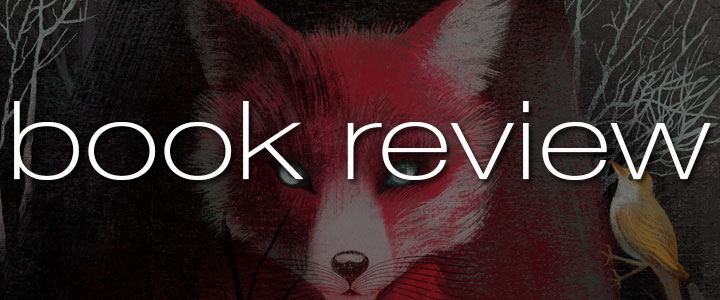
The Too-Clever Fox
by Leigh Bardugo
Series: The Grisha #2.5
Published: June 4, 2013
Genres: Fairy Tale, Fantasy, Short Stories, Young Adult
Format: eBook (32 pages)
Source: Purchased
In Ravka, just because you avoid one trap, it doesn't mean you'll escape the next. This story is a companion folk tale to Leigh Bardugo’s upcoming novel, Siege and Storm, the second book in the Grisha Trilogy.
Short and Sweet
The Too-Clever Fox is a fable has a little of everything – talking animals, a moral about being wise, and a girl to save the day. Yep. A girl. This is an adorable, well written companion story to the Grisha Series. Even if you haven’t read the Grisha Series, pick up this charming fairy tale that stands well on its own.
Jessica Thinks Too Much Version
This was a gripping fable about a fox that is so clever he tries to outsmart death. It doesn’t work out so well. Luckily, he has a smart girl to come and save him. We need more fairy tales to end that way.
Normally, a story about talking animals telling us how to be wise instead of clever would be tedious, but Leigh Bardugo sucks you right into the story. She gives the fable an Ugly Duckling twist and a good dose of feminism to make this fairy tale feel modern and different. The other animals point out how ugly the fox is, but instead of crawling into a hole and whining about how he doesn’t fit in, he says this:
I can bear ugliness. I find the one thing I cannot live with is death.
– Leigh Bardugo, The Too-Clever Fox (Location 61)
That’s a good way to look at life. Optimism at it’s best. Yeah, I’m ugly. At least I’m not dead.
Nikolai is compared to the too-clever fox and they have a lot in common. They are both clever, rejected by their families, loyal, and they both love to flatter people.
Fables don’t usually have magic. This one doesn’t really have it either. What looks like magic is really people looking for evil in the wrong place. The fox is eager to have magic explain something instead of using logic based on the evidence he has.
Part of what makes the fox so clever is that he never uses the same way to escape twice. My favorite way he escaped was by making a promise to some fleas and then HE KEPT IT. He let fleas eat him alive for a year because he said he would. That kind of loyalty is amazing to me. Most stories are about how un-loyal people are. I found his loyalty refreshing and impressive.
All of Leigh’s short stories for this series have had a feminist slant. This one did, too. The girl is assumed to be harmless because she is young and pretty and lonely. Leigh does a great job of playing off of our stereotypes and challenging them. Even re-reading the fairy tale, I still didn’t want to believe that sweet young girl killed all those animals. I found her trap so interesting.
The trap is loneliness, and none of us escapes it. Not even me.
-Leigh Bardugo, The Too-Clever Fox (Location 268)
How is loneliness a trap?
I don’t really have a good answer for that. I think loneliness trapped the animals because they trusted someone they shouldn’t have. Or maybe she trapped them because they were traveling alone. Buddy system people. The fox was only saved because he had the nightingale with him. It makes me wonder how I get influenced by loneliness. For me, loneliness only makes me feel powerless when I’m not making an effort to care about other people. What do you think? Do we get trapped by loneliness? How do you escape that trap?
Content Rating: Mild, for a very brief description of skinning an animal while it’s alive.
This post contains affiliate links and I receive a small percentage of sales made through these links.










 My name is Jessica. I love to read Young Adult and classic literature. I’ve been a book blogger for six years and I haven’t gotten tired of it yet. I’m a very curious reader. Writing about all the questions and thoughts I had while reading a book is the best hobby ever.
My name is Jessica. I love to read Young Adult and classic literature. I’ve been a book blogger for six years and I haven’t gotten tired of it yet. I’m a very curious reader. Writing about all the questions and thoughts I had while reading a book is the best hobby ever.
I still haven’t read anything of this authors yet but I definitely plan to.
What an interesting question about how loneliness is a trap. I think when I read it I thought that their loneliness was their vulnerability and she trapped them by offering a reprieve from that loneliness.
I also really like your point about how the fox kept his promises. I haven’t read this tale in ages, but if I remember correctly it sort of creates a counterpoint to the girl. Who offered promises of companionship and love and affection but then betrayed that offer. But maybe I’m not remembering it right at all :)
I hadn’t thought of him as a counterpoint to the girl, but now that you brought it up he totally is! He does keep all his promises while the girl does not.
I loved this one too :) I love how these little novellas read just like folk tales from the Grisha world, with morals and messages. I guess loneliness is a trap in the story because it was that feeling of loneliness that caused them to become trapped. I think I’m definitely more vulnerable when I feel lonely as well. Great analysis, Jess.